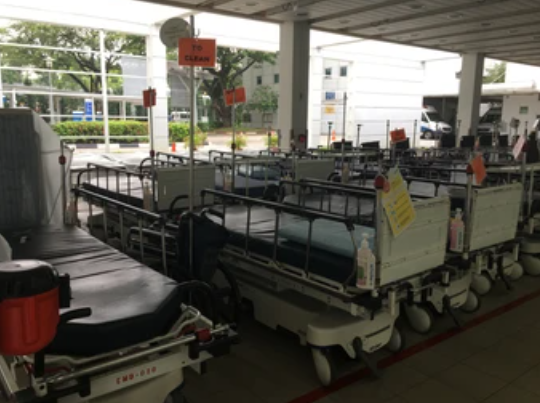Hospital-Acquired Infections and Medical Negligence

Hospital-Acquired Infections and Medical Negligence
Hospital-acquired infections (HAIs), also known as nosocomial infections, are infections that patients acquire during their stay in a healthcare facility. These infections can occur as a result of various factors, including improper hygiene practices, inadequate sterilization of medical equipment, contaminated surfaces, and the presence of drug-resistant bacteria. When HAIs are the result of medical negligence, patients may have legal recourse to seek compensation for their injuries. Here's a detailed explanation of the relationship between hospital-acquired infections and medical negligence:
Standard of Care:
Healthcare providers have a duty to adhere to a standard of care when treating patients. This includes taking precautions to prevent and control the spread of infections within healthcare facilities. The standard of care requires healthcare providers to follow established protocols, guidelines, and best practices to minimize the risk of HAIs.
Identifying Medical Negligence:
Medical negligence related to HAIs may occur in various ways, including:
- Failure to follow proper hand hygiene protocols.
- Inadequate sterilization of medical instruments.
- Poor maintenance of a clean and sanitary environment.
- Negligence in implementing and enforcing infection control measures.
- Failure to isolate patients with contagious infections.
- Inappropriate use of antibiotics leading to drug-resistant infections.
Proof of Causation:
To establish medical negligence, it is necessary to prove that the negligent actions or omissions of healthcare providers directly caused the patient to acquire the HAI. This may involve demonstrating that the infection is linked to a specific healthcare facility, procedure, or healthcare provider.
Damages:
Patients who have acquired HAIs as a result of medical negligence may suffer various damages, including:
- Physical harm and complications associated with the infection.
- Prolonged hospitalization, additional medical treatments, and associated expenses.
- Pain and suffering, both physical and emotional.
- Lost wages or reduced earning capacity due to the effects of the infection.
- Long-term consequences, such as disability, organ damage, or chronic health issues.
Legal Action:
Patients who believe they have acquired an HAI due to medical negligence should consult with a medical malpractice attorney specializing in hospital-acquired infections. The attorney will review the medical records, gather evidence, and assess the viability of a medical negligence claim.
Burden of Proof:
In a medical negligence claim related to HAIs, the burden of proof lies with the patient. It is necessary to demonstrate that the healthcare provider's negligence directly caused the infection, and the infection would not have occurred in the absence of that negligence.
Expert Testimony:
Medical negligence cases involving HAIs often require expert testimony from infectious disease specialists or other medical professionals. These experts can provide opinions on the standard of care, causation, and the impact of the infection on the patient's health and well-being.
Settlement or Trial:
Once a medical negligence claim is filed, the parties may engage in settlement negotiations to reach a resolution. If a settlement cannot be reached, the case may proceed to trial, where a judge or jury will assess the evidence and determine liability and any awarded damages.
Prevention and Improvement:
Hospital-acquired infections are a significant concern within healthcare facilities. Efforts should be made to prevent such infections through the implementation of robust infection control protocols, staff education and training, proper sanitation and sterilization practices, and ongoing monitoring and surveillance of infection rates.
When medical negligence contributes to the acquisition of an HAI, patients have the right to seek compensation for their injuries. By pursuing a legal claim, patients can hold healthcare providers accountable for their negligent actions or omissions and seek financial compensation for the damages suffered as a result of the hospital-acquired infection.
When medical negligence contributes to the acquisition of an HAI, patients have the right to seek compensation for their injuries. By pursuing a legal claim, patients can hold healthcare providers accountable for their negligent actions or omissions and seek financial compensation for the damages suffered as a result of the hospital-acquired infection.














No comments